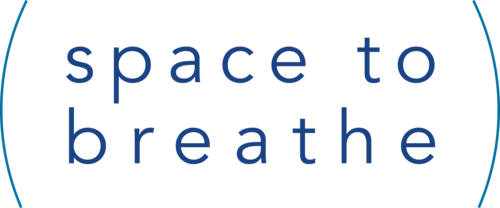MENTAL HEALTH AWARENESS TRAINING
Thank you so much for being part of our training session yesterday. This page will give you the notes and a few additional resources to explore.
MENTAL HEALTH FIRST AID/SIGNPOSTING APPROACH
We discussed taking a signposting or Mental Health First Aid style approach to helping people. This approach is different from therapy or coaching in that we aim to:
make someone safe (a bit like medical first aid)
listen
give them support and encouragement
signpost them to support that can help them (normally back at home)
There are two equally valid Mental Health First Aid approaches - ALGEE and CARES. These are detailed below. Either one of these approaches will be great for our time together.
Listening skills
It’s important to listen without judgement or prejudice. This approach means we can give space for people to share and to express themselves. This will often lead to greater self-awareness and give the person to ‘know’ what’s going on. From this place, we might be able to work with them to signpost them to help e.g. therapy, IAPT or a visit to the GP.
Listening skills are often quite straightforward to understand but difficult to do. They involve listening attentively and a few techniques can really help. Listening skills are “paying attention and responding with the intent of understanding the speakers feelings and content” (Savage/MacMillan)
We can listen to:
Words
Physical signs (posture, expression, movements)
Emotions
Experiences and actions
Vocal delivery (tone, pitch, level)
LIstening involves close attention to what is communicated and using skills to allow further self-expression. How can I enable this person to fully share what is going on with them?
Three basic responding skills:
• Mirroring - “so what I hear you saying is”
• Validating - “I totally understand why that felt so painful”
• Empathising - “that must have been a hard experience for you”
Listening seems a simple skill, but can hit several problems. Watch out for:
Distractions.
Evaluations. We can begin to form opinions and impress them on the person speaking.
Differences. Such as social differences or our own personal filters.
You’re all skilled listeners but these approaches should really help us support people.
BOUNDARIES
We talked about setting healthy boundaries and in particular intraphysic boundaries - that my emotions are mine, that yours are yours. A person may share their emotions with me and that’s fine, but I’m not required to take them on.
We discussed an imaginative exercise as follows:
Task: creative an imaginary house and garden or landscape in your mind. This landscape is a metaphor for your working life around how you help people and which areas of life you let people into or let people see and which remain private. You may draw this on a page. Use the landscape to consider the following:
What spaces exist in this landscape?
What fences exist? High walls or picket fences?
Who comes into your garden?
Which areas exist? Which are private or public?
How much will you allow someone into your garden?
Areas to consider:
Focused relationships: service users and providers. Keeping relationships within a working environment e.g. in the street, facebook etc
Personal information – whats shareable, whats not, unnecessary contact details.
Workload – working within your means
Needs of individuals you’re helping, putting vulnerable people’s needs at the forefront of the exchanges you have with them.
For more check out this paper from MIND.
Tools and techniques
There are many techniques and tools which can help yours and others mental health. Here is a selection explained from the library of Space to Breathe on Youtube. There are more videos here.
Awareness of Mental health issues and conditions
We are grateful to our friends at Re:Think Mental Illness for these brilliant explainers of different mental health conditions and challenges. Use this as a guide to help you signpost people to further help.
Useful contacts
We are grateful to MIND for this excellent list of useful contacts. Why don’t you note down the ones you find helpful and then make a list of useful contacts so you can refer to them in conversation. Do encourage people not to be afraid to pick up the phone.
If in doubt we also strongly recommend the Samaritans who provide a wonderful service and are always ready and willing to talk to people. If you’re in any doubt, point people here. The number is 116123 and the website is here.

